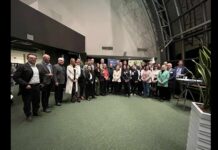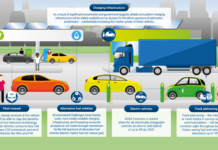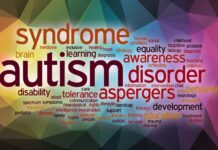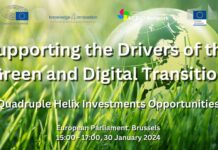The Chair of this working group is Genci Kojdheli,MBA
 He is the General Director of Integration, Strategic Planning and Economic Development at the Municipality of Tirana, Albania.
He is the General Director of Integration, Strategic Planning and Economic Development at the Municipality of Tirana, Albania.
His prior engagements with the public administration include positions with the Ministry of Social Welfare and Youth and the Ministry of Interior, while he has worked with international organizations such as World Vision, UNDP, World Bank, and OSCE. Genci holds a BA in law and an MA in International Law and Human Rights, while he has had over 10 years of lecturing experiences in various public and private universities in Tirana, in subjects including human rights, comparative international law, Roman law, history of the institutions, etc.

The “Municipalities and Cities in the Future” working group plays a pivotal role in shaping the vision and strategies for creating sustainable, resilient, and innovative urban environments..
The primary focus of this working group is to collaborate with local governments, policymakers, urban planners, and community stakeholders to envision and plan for the cities of the future. Here are the key tasks and responsibilities that such a working group might undertake:
-
Urban Planning and Design: Collaborate with municipalities to develop urban plans and designs that prioritize sustainability, resilience, and inclusivity. These plans should guide future development and infrastructure projects.
-
Sustainability Initiatives: Advocate for and support sustainability initiatives, such as renewable energy adoption, waste reduction, green building practices, and sustainable transportation solutions.
-
Resilience Planning: Assist cities in developing comprehensive resilience plans to address climate change impacts, natural disasters, public health crises, and other vulnerabilities.
-
Digital Transformation: Promote the integration of digital technologies and smart city solutions to improve urban services, enhance efficiency, and engage citizens in decision-making.
-
Inclusivity and Equity: Encourage policies and programs that promote inclusivity, address social disparities, and ensure that all residents have access to essential services, housing, education, and economic opportunities.
-
Community Engagement: Foster community engagement and participation in urban planning, allowing residents to contribute to the development of their cities and municipalities.
-
Public Health and Well-being: Advocate for public health initiatives, access to healthcare services, and the development of green spaces and recreational areas that promote physical and mental well-being.
-
Transportation and Mobility: Support sustainable transportation options, such as public transit, cycling infrastructure, and pedestrian-friendly urban design, to reduce congestion and improve air quality.
-
Economic Development: Collaborate with local businesses, industry associations, and educational institutions to stimulate economic development, create jobs, and diversify the local economy.
-
Cultural and Creative Vibrancy: Promote cultural activities, arts, and creative industries to celebrate local heritage, enhance tourism, and foster a sense of community.
-
Affordable Housing: Work on policies and initiatives that address the housing affordability crisis, including affordable housing projects and housing support programs.
-
Education and Lifelong Learning: Support access to quality education, vocational training, digital literacy programs, and lifelong learning opportunities for residents of all ages.
-
Data-Driven Decision-Making: Encourage the use of data and analytics to inform urban policies, monitor progress, and evaluate the impact of initiatives.
-
Safety and Security: Collaborate with law enforcement agencies to enhance public safety, address crime prevention, and provide social support services.
-
Interconnectedness: Promote efficient public transportation, reduce urban sprawl, and encourage mixed-use zoning to minimize long commutes and enhance community interconnectedness.
-
Responsible Technology Use: Advocate for responsible technology deployment, ensuring data privacy, cybersecurity, and ethical AI practices.
-
Local Food Production: Encourage urban agriculture and local food production to enhance food security, reduce transportation-related emissions, and promote healthy eating.
-
Collaborative Governance: Facilitate collaborative and transparent governance models that involve various stakeholders in decision-making processes.
-
Respect for Cultural Heritage: Balance modern urban development with the preservation and celebration of cultural heritage to maintain the unique identity of the city.
-
Adaptability: Promote adaptability and innovation in city planning and governance to address emerging challenges and seize opportunities.
The “Municipalities and Cities in the Future” working group should engage in strategic planning, research, policy advocacy, and community outreach to help cities and municipalities evolve toward more sustainable, inclusive, and resilient urban environments. Collaboration, citizen engagement, and a long-term vision are essential to shaping the cities of the future effectively.























